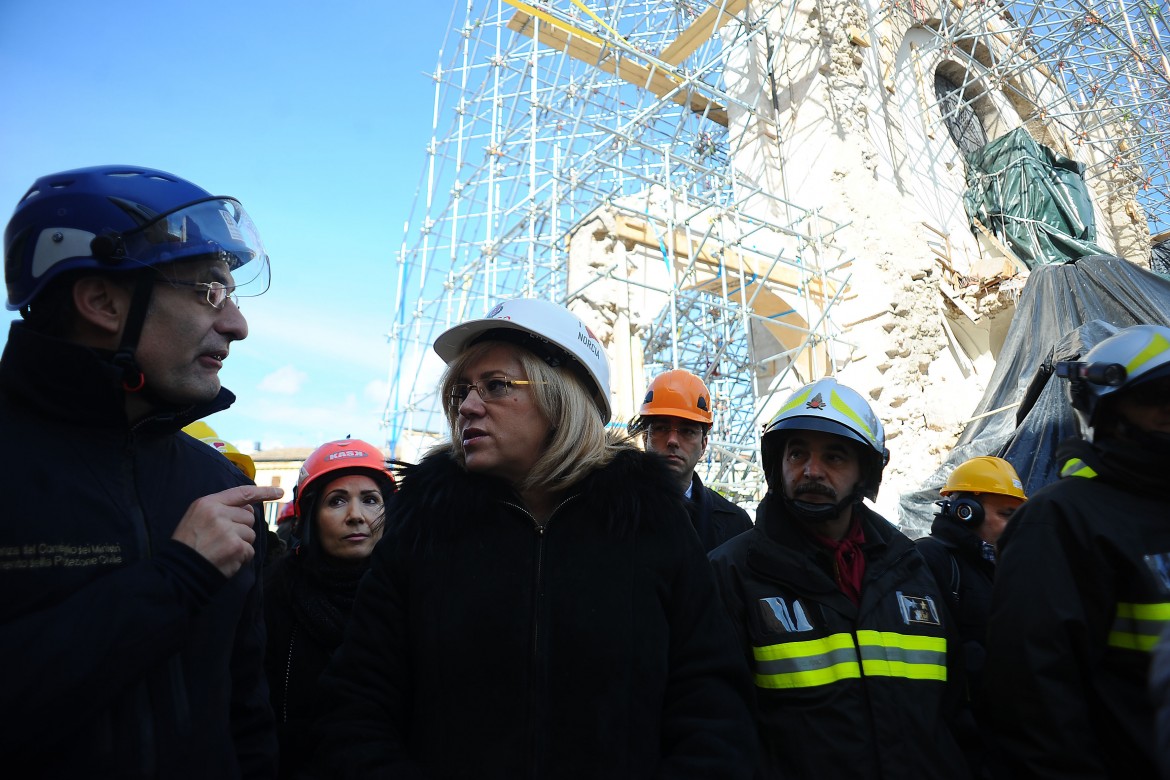Reportage
Letter to Brussels: Earthquakes have caused €23.5 billion in damage
It will cost 1.4 percent of Italy’s GDP to repair all the damage caused by a succession of earthquakes that began striking last year.

On the day when the National Institute of Geophysics and Volcanology changed the name of the “Earthquake in central Italy” (it is now officially called “Amatrice, Norcia and Visso seismic sequence”), the Civil Protection agency sent to Brussels the complete dossier with the estimate of the damages
And the costs already incurred, caused by the quakes that have not stopped since Aug. 24 last year in Marche, Lazio, Umbria and Abruzzo. The final bill amounts to €23.5 billion, or 1.4 percent of the country’s GDP, seven times more than the amount Italy sought from the European Union for the structural adjustment of accounts. This includes €12.9 billion related to private buildings, €1.1 billion for public structures and €2.5 billion for the salvage of cultural heritage.
The goal is to be able to access the European Union Solidarity Fund. However, this Fund has so far invested only €3.8 billion in 24 countries throughout its history.
In an interview with TV2000, the head of the International Relations Department of Civil Protection, Luigi D’Angelo, stated: “The Solidarity Fund will contribute to the costs of emergency management, not for reconstruction. For this, there will be other resources, the European Structural investment Fund is not excluded.”
The gap between the scope of the damage suffered by Italy and what will come out of the Community coffers could still be substantial, even if a few days ago, during a visit to areas affected by the quake, the European Commissioner for Regional Policy Corinna Cretu reassured that “the E.U. will support the reconstruction process.” Brussels does not seem willing to make concessions on the upcoming €3.4 billion corrective action. A measure which certainly does not help to get money to the quake-hit areas needed for the implementation of homeland security and the start of reconstruction, while the displaced people get houses at a very slow pace and the completion of provisional villages is not expected before next Autumn.
By Nov. 16th last year, however, Italy had submitted its request to activate the Solidarity Fund by providing an initial estimate of the costs of just over €7 billion, while reserving its right to update the figures. This initial report referred only to the damages of the Aug. 24 earthquake, among which there were Amatrice, Accumoli and Arquata del Tronto. In that case, the European Commission had granted the maximum advance on financial contributions: €30 million.
The government will try to play with the budget, as made evident by the various decrees issued in recent months: the reconstruction will be spread over time (it will take at least two decades to be able to rebuild the land to the conditions it was until the night of Aug. 24). Some solutions will be developed with the banks, using classical instruments like tax credits. Basically, this is the first earthquake that is being managed entirely under economic austerity and every move will necessarily be linked to the obligation to maintain the budget balance in line with European directives.
During the opening of the judicial year, the president of the Court of Auditors Arturo Martucci Scarfizzi put a stop to everyone: “Prevention is linked to the reconstruction, because it is not a matter of only guarding against possible events, but to program protection against the dramatic effects of seismic events characterized by potential continuity.” Therefore, “this aspect must be taken into account also in the European financial interventions implemented by the government and parliament.”
The disaster figures are merciless. Out of 43,853 examined private buildings, 49 percent is unfit for use; out 2,184 schools, the figure drops to 28 percent; while for public buildings, 22 percent are wrecked. These figures do not include partially damaged structures. Then there is the whole section of the road network: 15,300 km of roads, with almost 500 interventions to make them safe again, at an estimated cost of €389 million. Anas (Italian public company that manages roads) has compiled a recovery plan, which will form part of a wider project to upgrade the infrastructure. In this case, the estimated investment goes beyond €1.7 billion. This is the result of 55,000 earthquakes in less than six months.
Originally published at https://ilmanifesto.it/lettera-per-bruxelles-235-miliardi-i-danni-causati-dal-terremoto/ on 2017-02-16
